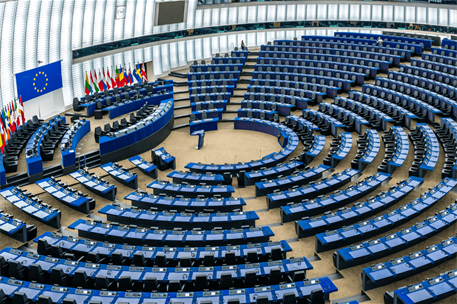
What is the European Commission?
The European Commission is the institution of the European Union (EU) responsible for ensuring the Community interest and compliance with the founding treaties. It is politically independent of the Member States, and performs executive, legislative, oversight and high political representation functions.
Where is the European Commission based?
The Commission's headquarters are in Brussels (Belgium), although some of its departments are in Luxembourg. It also has offices in all EU Member States.
What are the functions of the European Commission?
The Commission is usually identified as the "executive body" of the EU, but its functions are very broad, and include legislative powers, control of legality or high institutional representation. Its main tasks are as follows:
- To propose new legislation: The Commission is the only European institution that submits proposals for new legislation for adoption by the Parliament and the Council. However, other EU institutions can call on the Commission to submit a proposal, as can citizens themselves through the European Citizens' Initiative.
- To manage European policies and allocating EU funds: It sets spending priorities together with the Council and Parliament, prepares annual budgets for approval by the Council and Parliament, and monitors budget implementation.
- To ensure compliance with EU law: the Commission ensures that EU law is correctly implemented in all Member States. To this end, it cooperates with the Court of Justice of the European Union.
- To represent the EU on the international stage: It speaks on behalf of all the countries of the Union in certain international bodies and forums, and negotiates international agreements. This representation is limited to areas within its remit, such as trade policy. In other matters, such as common foreign and security policy, representation is by the President of the European Council or the High Representative of the Union for Foreign Affairs and Security Policy.
What is the composition of the European Commission?
The Commission is composed of 27 Commissioners, one from each Member State, under the direction of a Commission President. Each commissioner is responsible for a specific portfolio, in a similar way to ministers. The High Representative of the Union for Foreign Affairs and Security Policy, appointed by the European Council with the approval of the President of the Commission, has the status of a Commissioner.
The Commissioners and the President of the Commission make up the College of Commissioners. The President of the Commission appoints the Vice-Presidents of the College, although the High Representative always has this status.
How are members of the European Commission elected?
The appointment of the members of the European Commission is closely linked to the European Parliament elections. Once these have taken place, the European Council proposes a candidate for President of the Commission, taking into account the election results. The nominee usually comes from the political group with the largest representation in Parliament.
The Parliament must approve the new president by an absolute majority, before they are formally appointed by the European Council.
The president-elect will then appoint 26 of the 27 commissioners. The missing person is the High Representative of the Union for Foreign Affairs and Security Policy, and their appointment is made by the European Council, although it also requires the approval of the Commission President.
Commissioners-designate appear before the relevant parliamentary committees, where their suitability for the post is assessed. Once approved, Parliament votes for the approval of the full College of Commissioners, including the elected President and High Representative.
If the College as a whole is approved, the European Council completes the process with the formal appointment of all Commissioners.
The president's term of office is five years. After the European elections on 6-9 June 2024, the next President of the Commission will be elected for the period 2024-2029.
How is the European Commission organised?
In addition to the College as the highest decision-making body, the European Commission is organised into directorates-general and executive agencies.
Directorates-General are bodies responsible for a particular subject area. They may be attached to one or more commissioners. Directorates-General develop, implement and manage EU policies, legislation and funding programmes.
Executive agencies have a more autonomous functioning, managing programmes or functions of the Commission. For example, this is the case of the European Research Executive Agency.
These bodies are served by a staff of 32,000, including both civil servants and employees.
How can citizens interact with the European Commission?
Citizens can interact with the European Commission through the Citizen Participation Platform. This platform allows citizens to participate in debates on EU policies and share their views.
Participation can take place through different mechanisms, such as through online contributions or as part of citizens' panels.
Non official translation






